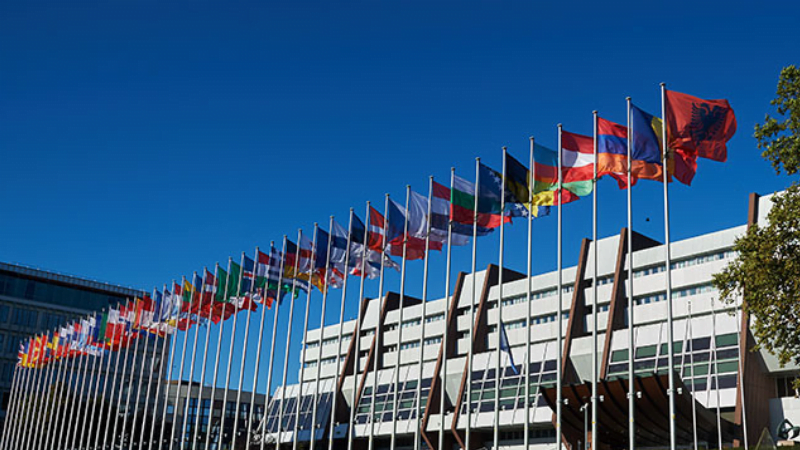Justice Minister Jonathan Attard sent an official reply to the Council of Europe’s Safety of Journalists Platform insisting that the government of Malta held broad public consultations on its proposed media reform bills. The facts do not match his claims.
In a letter dated 19 October, uploaded to the platform on Monday, Attard said that “it is factually incorrect to state that the Government of Malta moved on ‘to pass anti-SLAPP legislation as part of a media reform package without adequate scrutiny from journalists and civil society.'”
The minister was writing in response to a ‘serious threat alert’ on Malta that the platform issued on 7 October over the government’s draft anti-SLAPP legislation, which was tabled in parliament without “adequate scrutiny” and in which “international standards are not being reflected”.
The platform alert warned that “the latest proposals under discussion do not appear to incorporate recommendations to strengthen the legislation and reflect international standards issued by the Organisation for Security and Co-operation in Europe (OSCE) and media freedom organisations following consultations pursuant to the public inquiry report.”
The alert also pointed out that Council of Europe Commissioner of Human Rights Dunja Mijatović took the somewhat extraordinary step of publishing an exchange of letters with Prime Minister Robert Abela insisting that Malta “comply with international standards, engage journalists and civil society and ensure accountability and transparency at all stages”.
In the government’s official response, Attard insisted that “these draft legislative amendments had been drafted following various consultations with key stakeholders, including international organisations such as the Organization for Security and Co-operation in Europe (OSCE) Representative on Freedom of the Media, the Institute of Maltese Journalists and in a continued dialogue with the family of Mrs. Caruana Galizia”.
Attard made no mention of the international organisations that said their offer for technical assistance in the implementation of the public inquiry findings had not been taken up by Prime Minister Robert Abela, despite his claim of having held a “broad and meaningful consultation” before appointing a committee of experts to oversee the proposed legislative changes.
More perplexingly, the justice minister wrote that the “bills had been tabled in the House of Representatives by the Honourable Prime Minister, Robert Abela, on 27 January 2022, rendering them accessible to the public and hence open for scrutiny and review by the public at large”.
The minister was referring to a document containing an early draft of the legislative proposals for the media that Abela presented in parliament on 27 January following a parliamentary debate in which the prime minister claimed the Opposition had been consulted about the draft media proposals, and that he had given then Opposition MP Therese Comodini Cachia a copy of the proposals himself.
The MP had indeed been privy to the proposals, but it was as the lawyer representing Daphne Caruana Galizia’s family and not as an Opposition MP. She asked the prime minister for authorisation to publish them on social media before sharing them on Twitter.
When contacted by The Shift about Attard’s claim that the bills had been tabled in the House of Representatives in January and were therefore open to scrutiny, Comodini Cachia said “presenting a document to the House because you have referred to it during your speech in parliament is not tantamount to public consultation. Calling people for a chat at one’s office is not tantamount to public consultation”.
“Public consultation is a process that must be formally opened to the public in an organised manner,” she said. “An entity must coordinate the process, clearly indicate the parameters of the subject matter being consulted on, set a time frame, and indicate which authority is to receive the public’s opinion. That authority is then expected to publish a report on the opinions collected and the outcome of that consultation.”
Attard also claimed that the government-appointed committee of media experts “had consulted academia, authors, publications, journals and also consulted publicly”.
However, correspondence submitted in the committee’s report shows that when the committee was invited to participate in a conference to discuss the legal changes being proposed by the government, the committee’s secretary Frank Mercieca declined the invitation.
Mercieca wrote that the committee’s remit “does not authorise it to discuss its deliberations in public,” adding, “until our recommendations are finalised, it would be prudent not to participate in public discussions”.
Attard tabled the three media bills in the House of Representatives on 4 October, prompting more than a hundred Maltese journalists, academics, and artists to write to Prime Minister Abela urging him to hold a public consultation exercise on the proposed legislation.
The Justice Minister concluded his letter to the Council of Europe’s Safety of Journalists Platform by saying that the prime minister has written to Judge Michael Mallia, chair of the experts’ committee, “in a spirit of cooperation asking that the Committee of Experts consider the initiation of another consultation process on the three Bills”.
This development only occurred after two Institute of Maltese journalists (IGM) members threatened to withdraw from the committee. Only then did the prime minister finally stop the parliamentary process and promise to open the legislation to public scrutiny.
“No amount of window dressing and misinformation can qualify any action taken so far by the government as amounting to public consultation,” Comodini Cachia said to The Shift. “In the meantime, while the government continues on its reputation marketing path, the press remains exposed to the chilling effects of threats and increasing challenges in relation to the lack of systems of protection and resources, as well as a general lack of an enabling environment.”













